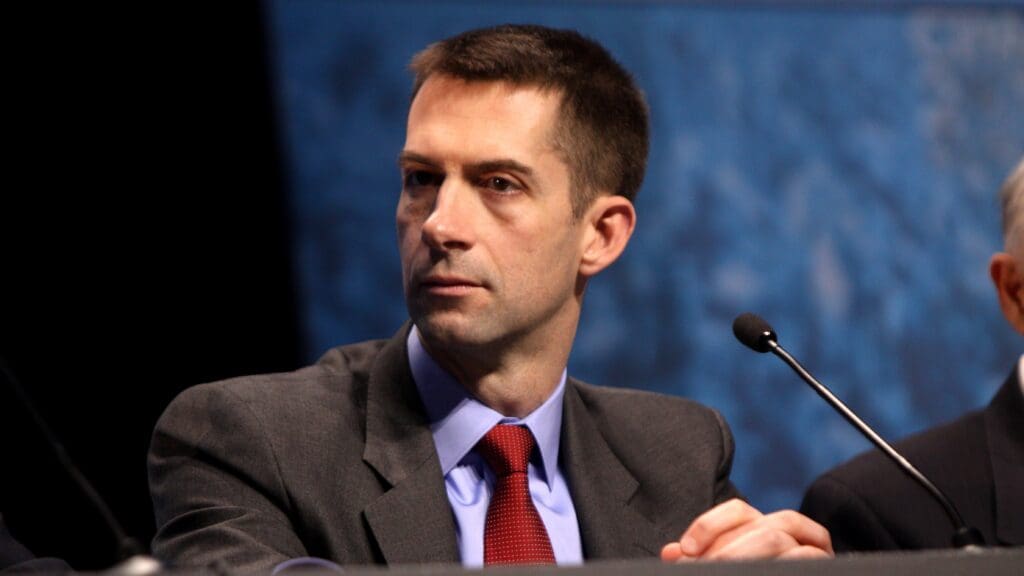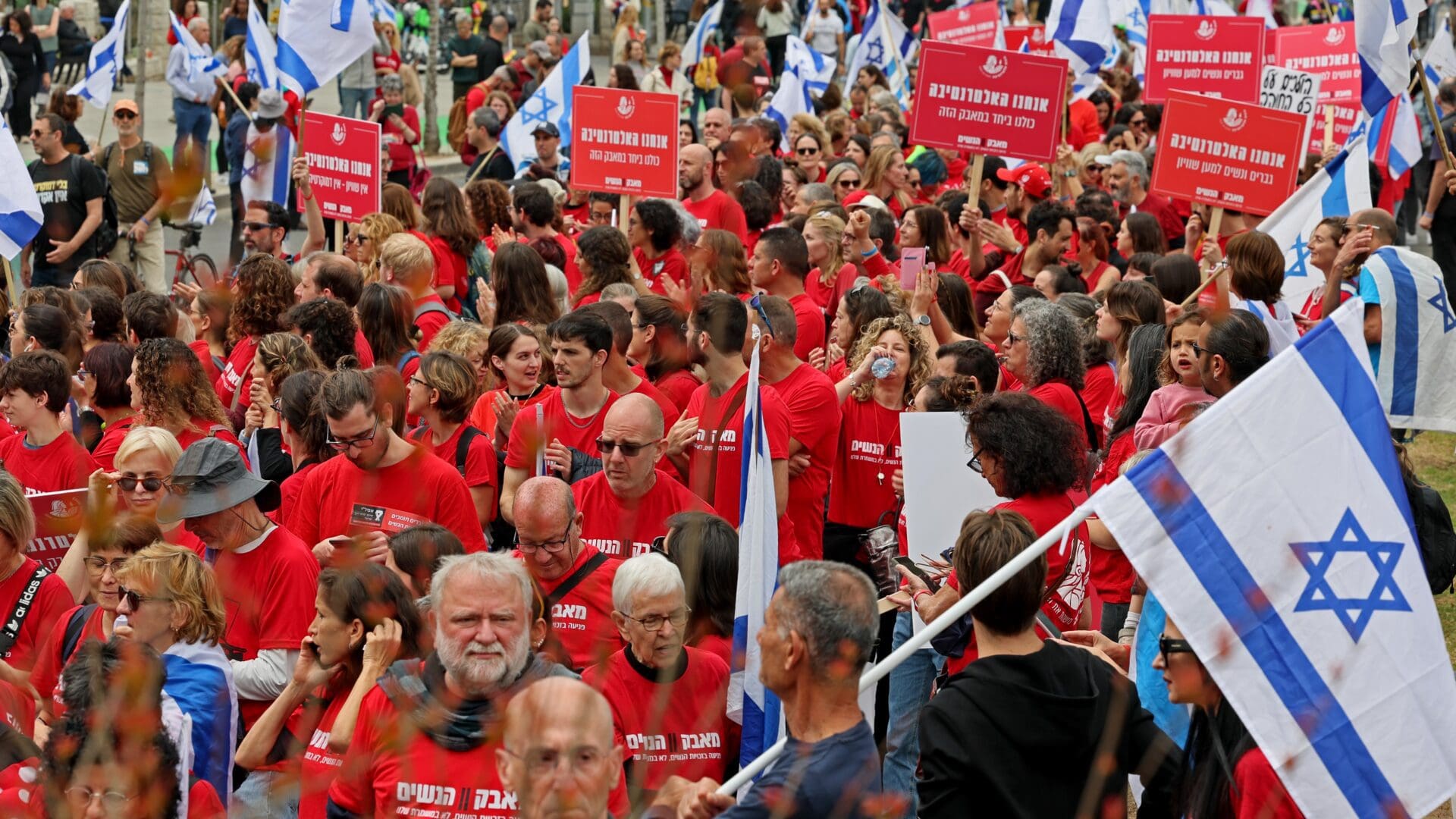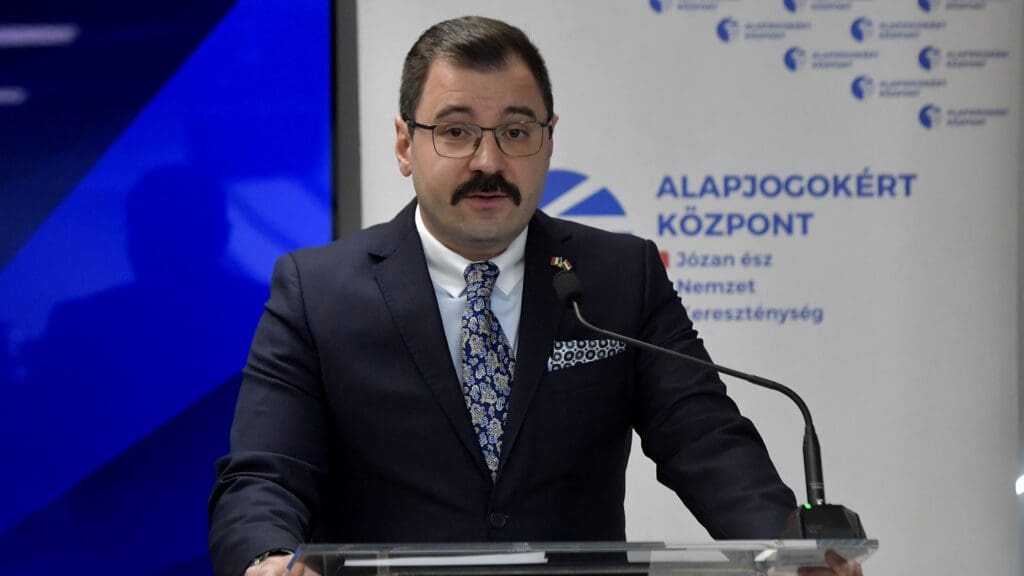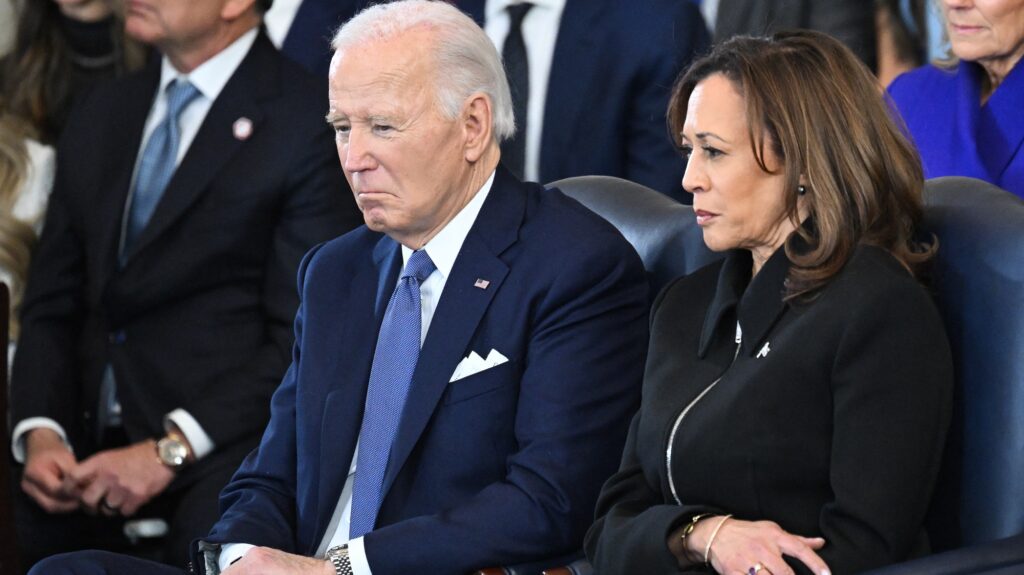For almost three months, protests have been taking place in Israel against the government’s proposed legal reform. Growing tensions increase fears that Israel could fall into a serious constitutional and social crisis if the parties cannot reach a compromise. All this at a time when, in the face of external and internal threats, Israel needs unity perhaps more than ever.
There are three questions that need to be considered if we intend to assess and interpret the events in a thorough way.
How Serious Is the Situation?
Israel has entered the twelfth week of nationwide protests against the government’s plan to reshape the judiciary and give more power to the government and the Israeli parliament. By the beginning of March, the number of people taking to the streets across the country had already reached 500,000 and as the government does not seem to be backing down, the protests are becoming more intense, sometimes even violent. Not only are demonstrators calling the Israeli PM a dictator, the more radical protesters are chanting for Netanyahu’s death, and just a few weeks ago the wife of the prime minister of Israel, Sarah Netanyahu, had to be rescued from a hair salon by the police after the place was surrounded by protesters.
After years of political instability, with five elections just in the past four years, if a compromise is not reached, Israel may slip into an unprecedented constitutional and social crisis. The protests are feared to tear Israeli society apart after reaching social segments that were previously apolitical and making broad social-political consensus impossible. According to news reports, soldiers on active duty in several units in the Israel Defence Forces (IDF), such as the Air Force, have decided to refuse to serve, while dozens of reservists are opting out of volunteering for duty.

This poses serious national security risks, given that the IDF is the cornerstone of Israel’s security in a geopolitical environment extremely hostile to the Jewish state. Meanwhile, tensions are also running high between Palestinians and Israeli security forces at home, in an escalating conflict that has claimed dozens of civilian lives on both sides in the past three months, with experts warning of more terrorist attacks against Israeli citizens as the holiday season, including Ramadan and Pesach, approaches.
Benjamin Netanyahu, in his sixth term as prime minister, returned to power in December to head an unprecedentedly hard-right government including right-wing religious Zionist and ultra-orthodox parties. Netanyahu now faces criticism not only at home but also abroad for the planned judicial reform. In addition to senior US officials and President Joe Biden himself, Emmanuel Macron and Olaf Scholz also expressed their concerns during their meeting with Netanyahu. However, the PM should have something more important on his agenda than domestic politics to discuss with foreign partners, such as the growing threat of a nuclear Iran, to name just one.
What Is the Legal Reform Really About?
The judicial reform is a series of proposed changes to the judicial system and the balance of power in Israel, proposed by the new Netanyahu government. However, the changes are spearheaded not by the prime minister, who cannot get involved due to his court cases, but by Deputy Prime Minister and Minister of Justice Yariv Levin and the Knesset’s Constitution, Law and Justice Committee led by MK Simcha Rothman. By limiting the Supreme Court’s power of judicial review, giving the government control over judicial appointments, and restricting the powers of legal advisers, the reform aims to curb the judiciary’s influence on law-making and public policy. If passed, the reform would empower the Knesset to override Supreme Court rulings declaring Knesset-passed legislation unconstitutional by reintroducing the legislation and passing it with a majority of Knesset members. The reform would also reduce the ability of the courts to conduct judicial reviews of the Basic Law and would change the composition of the Judicial Selection Committee so that the majority of its members are appointed by the government, giving the government effective control over the appointment of judges.
Netanyahu and his government claim that legal reform is just balancing the branches of power after courts have concentrated excessive power in their hands. The administration argues that the reform gives more power and authority not just to the ruling government but to the opposition and the Knesset as well. By contrast, people fear that the reform would result in an erosion of democratic norms and the rule of law by removing checks and balances and consolidating government power, possibly resulting in quasi-authoritarian governance. Many had expected Israeli President Isaac Herzog, who has been watching the events with great concern, to pour oil on troubled waters after working for a compromise solution to resolve the differences between the protesters and the government. But Herzog’s plan was swiftly rejected, and the stalemate remains with the grave possibility of a civil war, as the Israeli president has repeatedly warned.
Are Foreign NGOs Involved?
While thousands of Israelis have been taking to the streets for weeks to protest against their government, foreign-funded NGOs are also taking advantage of the situation to fuel anti-Netanyahu sentiment, US and Israeli experts warn. Hiding behind the voice of Israeli citizens, these NGOs are apparently trying to channel the interests of foreign groups and governments without being a genuine part of the political community of the country and without having received any mandate from the Israeli people.
Tom Cotton, the United States senator for Arkansas argued that the US State Department is funnelling American taxpayer dollars to activist groups such as the Movement for Quality Government that are fomenting unrest against the Israeli government and demanding Netanyahu’s resignation. Mr Cotton stated that since 2020, State Department has sent more than 38,000 dollars to the movement for so-called ‘democracy education’ which now essentially means undermining Benjamin Netanyahu’s recently formed government, in line with the interest of the Democrats.

Caroline Glick, an award-winning American-Israeli columnist argues that Movement for Quality Government has been attacking the Netanyahu government since the very first day since it was formed at the end of December. Ms Glick highlighted that the movement has successfully prevented Shas party leader Aryeh Deri from serving as a minister in the government by a Supreme Court petition. In addition, recently, defying the votes of 2.4 million Israeli citizens who cast their ballots for the current government, MQG submitted a new petition asking the justices to declare Benjamin Netanyahu unfit to serve because of his pending court cases on charges of corruption. According to Glick, the organisation is also a key financier of the protests and has a major influence on Washington’s perception of Israel.
An Israeli expert, who requested anonymity, told Hungarian Conservative that there is no doubt that foreign NGOs involved in the protests are funded not only by private individuals but by European governments, such as Germany, too. But it is impossible to prove that the financing coming from foreign government is used specifically to support the anti-government protests. The Israeli official also stated that ‘both the Americans and Europeans feel comfortable being part of the discussion inside Israel.’ One specific example he gave is that of the US ambassador to Israel, Thomas Nides, who is increasingly active regarding Israeli domestic policy issues, including the legal reform. This kind of involvement of foreign officials is unique and unprecedented according to our source, which ‘makes you feel like you are one of their colonies’. Our local source also noted, however, that NGO activity in Israel is not as hot a topic as it is in Hungary, for example, since there are a ton of foreign-funded organizations through which philanthropists provide real support (e.g., building hospitals or schools) to the Jewish state. Therefore, there is neither the political will nor the possibility to effectively regulate the activities of these NGOs in the way that they have been (attempted to be) regulated in Hungary.
The Hungarian legislation that was referred to was passed in 2017 due to concerns about illegal foreign interference in elections and domestic affairs. The Hungarian parliament passed a law requiring NGOs that received more than 7.2 million HUF (about €18,000) annually from foreign sources to register as organisations ‘receiving support from abroad’. In 2021, the law was repealed following the ruling of the Court of the European Union that said it was in contravention of EU norms to mandate NGOs to report the names of their donors in their yearly financial reports.
Related articles:








